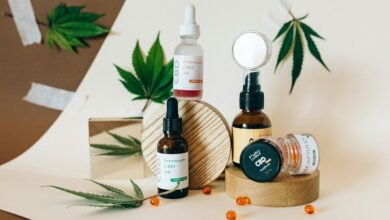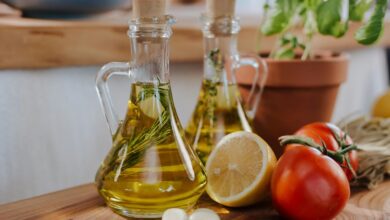
What Is Cbd Oil?
CBD oil is a natural extract from the cannabis plant, primarily containing cannabidiol. Unlike THC, CBD does not produce psychoactive effects. Its production involves various extraction methods aimed at ensuring both purity and potency. Many individuals explore CBD oil for its potential benefits, which include pain relief and anxiety management. Understanding how this oil is made and its applications can provide insight into its rising popularity in natural health solutions.
Understanding CBD: The Basics
Cannabidiol, commonly known as CBD, is a naturally occurring compound found in the cannabis plant.
Its legality varies across regions, leading to confusion and perpetuating CBD myths.
Many believe CBD produces psychoactive effects, similar to THC, which is false.
Understanding CBD's properties and legal status is essential for those seeking to explore its potential benefits while navigating the misconceptions surrounding it.
How CBD Oil Is Made
CBD oil is produced through a series of extraction processes that isolate cannabidiol from the cannabis plant.
Various extraction methods, such as CO2 extraction and ethanol extraction, are employed to ensure purity and potency.
The manufacturing process involves careful handling and testing of the final product, ensuring that it meets quality standards and retains the beneficial properties of CBD, appealing to consumers seeking natural alternatives.
Potential Benefits of CBD Oil
As interest in natural health solutions grows, many individuals are exploring the potential benefits of CBD oil.
Research suggests that CBD oil may provide effective pain relief, helping those suffering from chronic discomfort.
Additionally, it has been noted for its role in anxiety management, potentially reducing symptoms for users.
These qualities contribute to its appeal as a holistic health option.
How to Use CBD Oil Effectively
Understanding how to use CBD oil effectively requires careful consideration of dosage, method of consumption, and individual needs.
Following established dosage guidelines is essential for achieving desired effects while minimizing potential side effects.
Various application methods, such as tinctures, capsules, and topical creams, offer flexibility in consumption.
Individuals should explore these options to determine which method aligns best with their lifestyle and therapeutic goals.
Conclusion
In conclusion, CBD oil stands as a beacon of hope for many seeking natural relief from a variety of ailments. Its diverse potential benefits, coupled with a growing body of research, position it as a compelling alternative in the realm of holistic health. As individuals continue to explore the therapeutic landscape, understanding how to use CBD oil effectively will be crucial in harnessing its full potential. Ultimately, it invites a journey towards wellness, guided by nature's own remedy.






